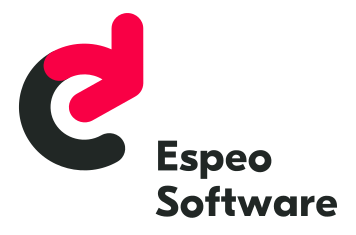Dubai’s commitment to implementing blockchain technology applications in all facets of the city’s life remains impressive. As many countries quibble over regulations and use cases, Dubai continues to surge ahead. Smart Dubai’s vision inspired us to create a plan to help leasing companies in the Emirate optimize their business processes. Blockchain technology offers a way to reinvigorate the Dubai rental market.
Using an advanced customer identification solution, our proposed platform will reduce paperwork and eliminate redundancies. Renters will be able to sign lease agreements, pay their bills or manage deposits using blockchain-based smart contracts. Landlords, meanwhile, can automatically settle payments using solutions combined with smart home devices. Adding blockchain as a trust and automation layer on top of a building management system will lend better efficiency, transparency, and safety for leasing companies, landlords, and tenants alike.
Business challenges
“Smart Dubai envisions a city where all its resources are optimized for maximum efficiency, where services are integrated seamlessly into daily life, where we protect both our people and information — creating the most enriched life and business experience possible for all.”
As Dubai attracts professionals from across the world, the demand for housing is booming. Expats from around the world come for better opportunities. The UAE is one of the largest remittance-sending countries in the world and may also benefit from P2P payment apps.
Since a large portion of Dubai’s population is from abroad, so coordinating rental agreements, deposits, utility payments, and residency status is a point of friction. If Dubai is to hold its competitive position as a destination for global talent, making the city as welcoming as possible is a top priority. Blockchain technology applications in real estate and not only make it easier for expats to find and rent a flat, but will also automate a lot of processes for leasing companies, utilities, and government.
In this technical proposal, we’ve thought through some of the technical solutions we would offer businesses looking to leverage blockchain to shore up profits and offer convenience to tenants.
Features adding value
Smart agreements — Coupled with customer identification and smart contracts, parties can sign and enforce digital agreements.
Digitizing documents — Phase out paper documents and enable the seamless circulation of digital documents in the ecosystem.
Blockchain identity — Offers advanced customer identification to optimize ineffective data exchange.
Payments — Landlords and tenants can securely record all their operations on one platform. Confirm rental payments and manage deposits using fiat-backed tokens. A built-in escrow mechanism will guarantee automatic settlement reconciliation.
Smart home — Advanced IoT sensors in the building will eliminate the need for manual energy consumption measurements.
Openness — our solution allows the leasing company to communicate with external systems such as verification office, settlement office.
Safe transactions — Cryptographic algorithms secure transactions and add a layer of trust.
Use case description
There are three entities in our solution.
- Central system — Leasing company’s central system.
- Customers — Tenants in company properties.
- External institutions — Data management systems that can exchange information with the company’s central system.
Renters can navigate the Dubai rental market much more effectively. Meanwhile, the leasing company can automate a lot of internal and external processes. This feature of blockchain technology applications greatly streamlines both areas.
Each verified customer on the platform can sign a rental contract online without the need for paper documents. The application writes the data to the blockchain automatically.
Next, our solution communicates in real time with smart home and reads data from utility meters. Every month, based on the data from the meters, our system can independently initiate rental payments.
From this moment owners and renters communicate via a platform. The app automates transactions between tenants and the leasing company.

Technical architecture
Our solution imagines a scalable platform based on microservices and blockchain. We chose Hyperledger Fabric powered by IBM for its safety and efficiency. Microservices give us much more flexibility for software development in the future.
Our identity provider is the gateway to customer verification. To further identify tenants and their residency status, the platform will use a REST API to communicate with government systems.
Each client can use a UX-friendly mobile app to use our platform. Advanced algorithms and blockchain technology record all operations related to property management.
We try to provide solutions at the highest level to improve the quality of smart contracts on the blockchain. To achieve this goal we will use our open-source oracle Gardener, which verifies third-party data coming from outside the blockchain.
Our solution is integrated with external systems including relevant immigration authorities and financial institutions. Here we can record the final information on rental payments, invoices, meter readings, and other necessary data.

Conclusion
Blockchain technology applications in real estate promise to streamline rental agreements offering convenience to renters and saving to leasing companies. Our solution is a combination of many technologies. Hyperledger Fabric enterprise blockchain, microservices, RESTful API, and a blockchain oracle gives this robust solution superior technical flexibility. This platform demonstrates the ethics of the Smart Dubai vision. We believe we have a unique opportunity to harness technology for industry transformation.
For more information on how to leverage blockchain in your business, contact us. We’d love to chat.

